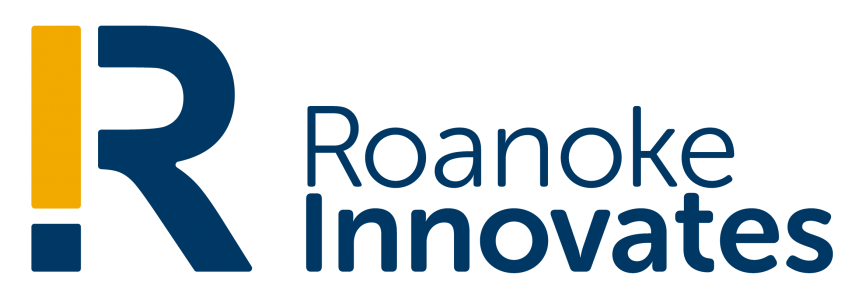Could brain scans reveal when someone is lying? Could addiction scientists help develop treatment programs for incarcerated individuals suffering from substance abuse disorders? Neuroscientists and addiction experts at the Fralin Biomedical Research Institute at VTC believe that emerging neuroscientific discoveries could complement criminal justice.
To explore this idea, more than 200 judges and attorneys from across Virginia along with Fralin Biomedical Research Institute neuroscientists and Carilion Clinic physicians met at a Neuroscience and Law Conference at the research institute on April 30.
Francis Shen, a neuroscientist, lawyer, and the executive director of the Harvard Massachusetts General Hospital Center for Law, Brain, and Behavior, moderated a panel discussion related to conflicting viewpoints on treatment, sentencing and recovery. He also made a solo presentation on the broad topic of neuroscience and law.
“When law adapts to new science, new technology, it offers us an opportunity to re-examine the reasons why humans do the things we do,” said Shen, who is also the executive director of education and outreach for the MacArthur Foundation Research Network on Law and Neuroscience. “It gives us an opportunity to harness that knowledge and do our jobs as lawyers better.”
The conference included sessions about cognitive neuroscience, neurolaw, decision-making, addiction, psychiatric treatment, and a comparison of the costs associated with incarceration and treatment.
“It is a unique opportunity for us to get out of our silos. We go to conferences, and we learn how to apply our craft, but rarely do we get together and learn about how our craft affects one another,” said Judge Robert Ballou, United States Magistrate Judge for the Western District of Virginia.
A common theme raised at the conference was the staggering rise of fatal drug overdoses. To address this complicated challenge, Warren Bickel, director of the Fralin Biomedical Research Institute’s Addiction Recovery Research Center, and Robert Trestman, senior vice president and chair of psychiatry at Carilion Clinic, shared experiences related to addiction and effective treatment.
Bickel’s research has shown that addictive disorders are often linked to impaired decision-making. A hallmark of addiction is the tendency to choose immediate gratification over longer-term, healthier benefits. Bickel shared that while control groups in studies tend to look five years into the future when making important decisions, people who are addicted to heroin have a narrow future view of roughly two weeks. Exploring effective ways to restore a person’s ability to value the future is an important facet of Bickel’s addiction recovery research.
“This is a multifaceted problem that requires neuroscience and addiction experts, medical and legal professionals, and society at large to address,” said Judge Michael Urbanski, chief United States judge for the Western District of Virginia. “This conference builds on cutting-edge neuroscience research being done here and nationally and is a unique gathering of many of the key stakeholders. This is the start of a conversation.”
The conference is the first of its kind to happen in the commonwealth, but neurolaw is not necessarily a new concept.
The MacArthur Foundation’s Research Network on Law and Neuroscience has examined the intersection of brain science and criminal justice for more than a decade. These neuroscientists from across the nation investigate three core aspects of law, including the mental states of defendants and witnesses, a defendant’s ability to control their behavior, and whether or not neuroscientific evidence should be evaluated in criminal cases.
Read Montague, director of the Computational Psychiatry Unit and Human Neuroimaging Laboratory at the Fralin Biomedical Research Institute, is a member of the MacArthur Foundation’s Research Network on Law and Neuroscience. Montague’s team uses brain imaging and computer simulations to trace sub-second fluctuations in dopamine and serotonin, neurotransmitters or chemical messengers that regulate a multitude of brain functions. This technique gives researchers the chance to take a closer look at system diseases, mental health disorders, developmental disabilities, and decision-making in real-time.
Closing the conference, Michael Friedlander, executive director of the Fralin Biomedical Research Institute, said that it is important to consider how bad decisions affect health outcomes.
“When a person smokes and develops lung cancer, overeats and develops diabetes, spends time in the sun and develops melanoma or cataracts, these are all examples of unwise decisions,” Friedlander said. “Our society seems more willing to accept financially supporting treatments for these illnesses, even though the decision-making process that leads to those illnesses is not so different than the ones that lead to drug abuse.”
Friedlander said opening the dialogue about addiction with clinicians, lawmakers, and criminal justice professionals may lead to effective treatments for people in need, while lowering rates of incarceration and promoting better health outcomes.
In addition to Shen, Ballou, Urbanski, Bickel, Trestman, and Montague, law enforcement officers, probation officers, prosecutors, defense attorneys, and people recovering from substance use disorders also weighed in. They included:
- Christine Baldwin, a certified peer recovery coach and administrator for the Roanoke Valley HOPE Initiative.
- Anne Barker, the eastern region administrator for community corrections.
- Nicholas Conte, the executive vice president and general counsel at Carilion Clinic.
- Thomas Cullen, a U.S. attorney for the Western District of Virginia.
- Terrance Engles, a treatment consultant for American Addiction Centers.
- Kevin Hall, Alleghany County’s sheriff.
- Jennifer Williams, chief probation officer at the United States Probation Office.
The conference was hosted by Virginia Tech Carilion, Fralin Biomedical Research Institute, Carilion Clinic, and Virginia Tech.

